Created Wed May 22, 2024 at 9:07 PM
Lecture #
FAQs #
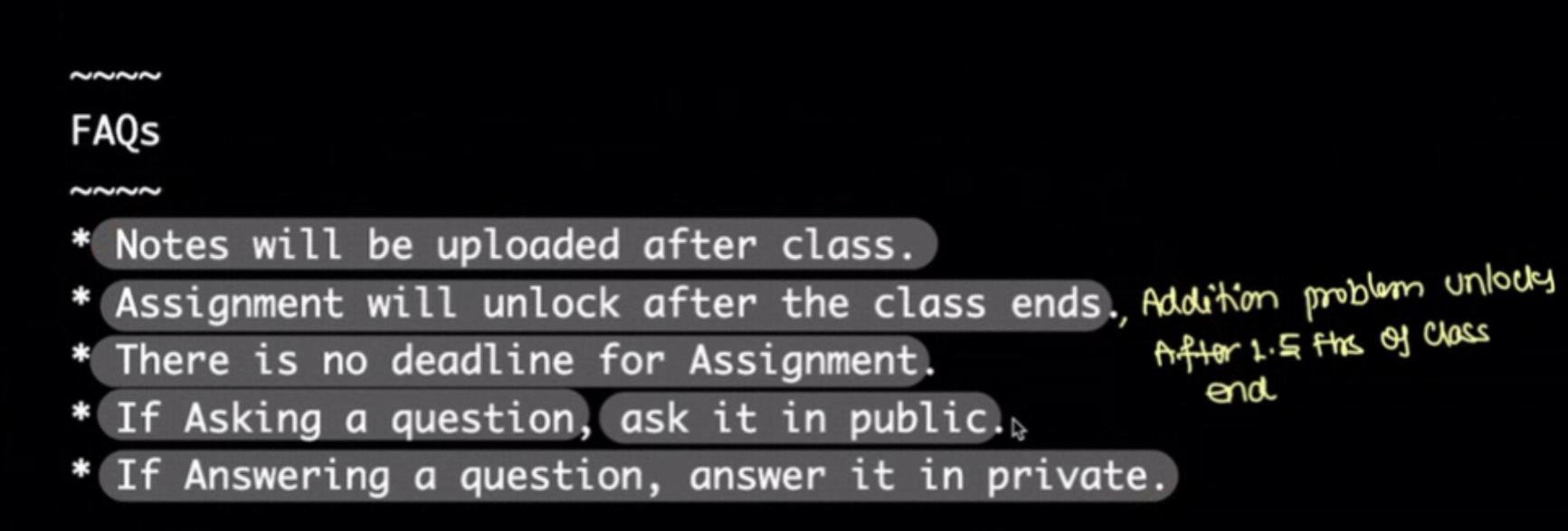
Focus of coming modules #
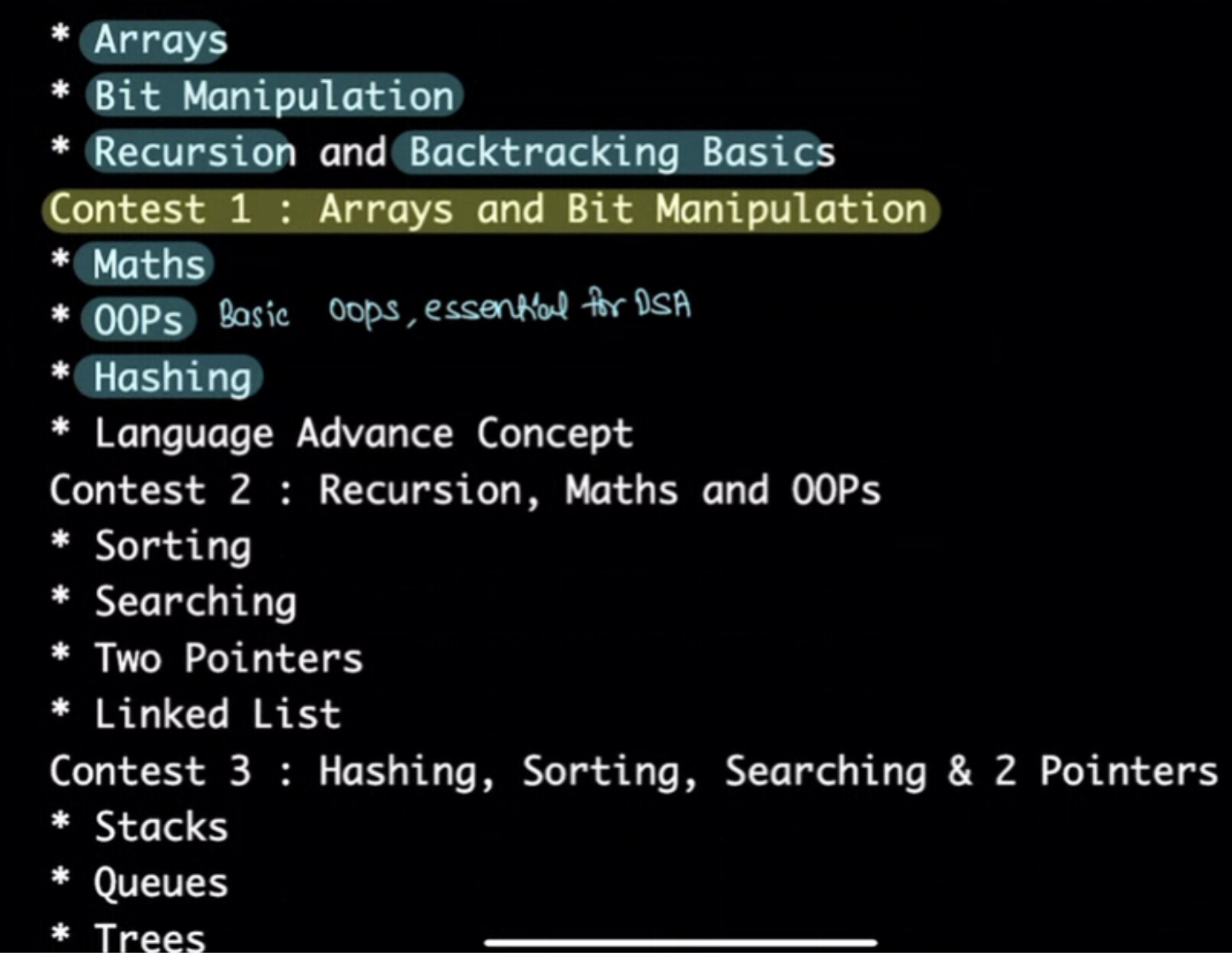
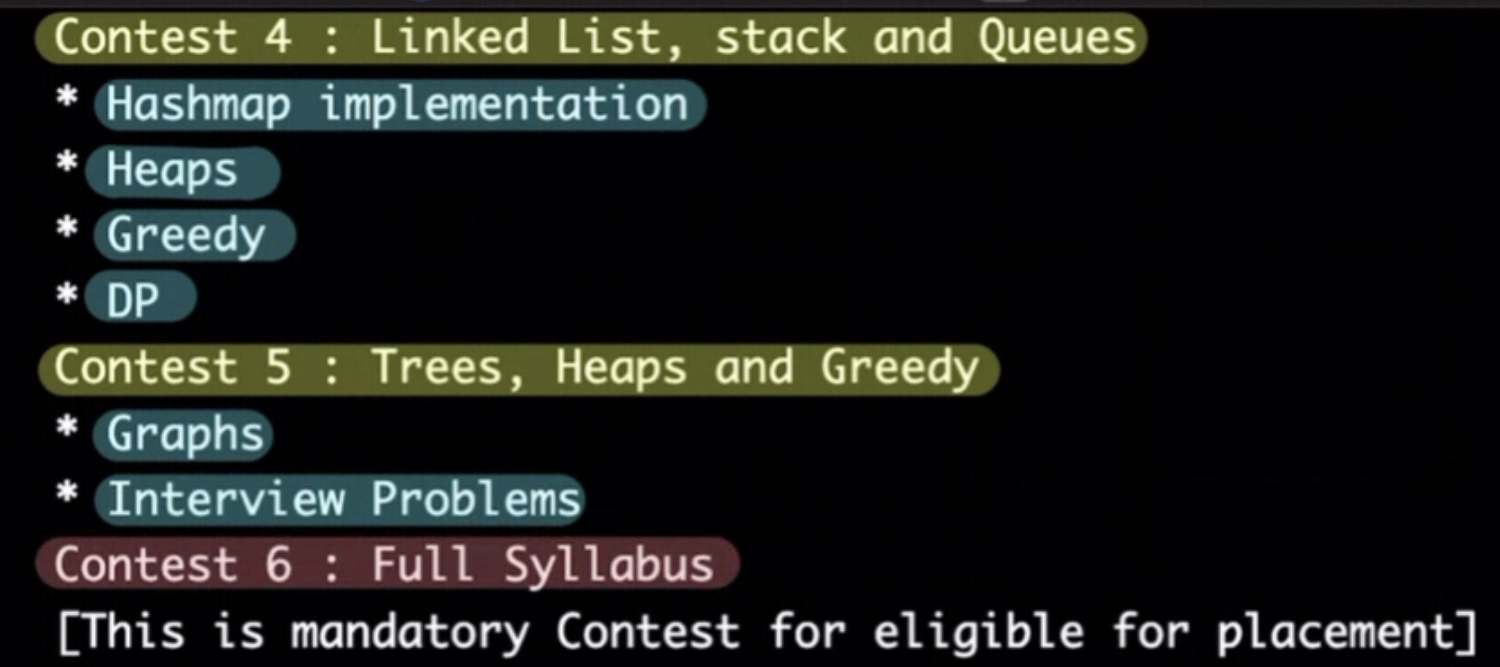
First quiz #
Q1: Sum of first n natural numbers.
Q2: Range (count) between numbers. Inclusive: b-a+1, exclusive: b-a-1, one-side: b-a.
Q3: Given N > 0, count number of factors. 1,
1, 2, 5, 10
algorithm for this, iterate (+1) until i*\i <= N
Q4: Prime algo (skip)
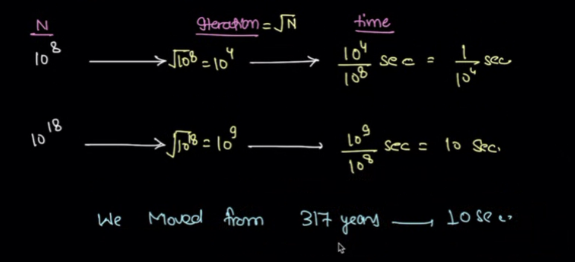 Q5: Nested loop table trick (make a table). Columns: i value, j value (… loops), count.
Q5: Nested loop table trick (make a table). Columns: i value, j value (… loops), count.
Big Oh #
- Consider only the largest order term
- Ignore multiplicative constants
Cases of TC #
Worst case, average case, best case.
Space complexity (input/output) #
Input and output space is not taken into account in space complexity. Only memory that’s used to solve the problem counts.
Example: Given some queries, storing answers in an array would not be counted in space complexity. We could just as well have printed it. i.e. it was a format requirement not the algorithm requirement.
TLE (time limit exceeded) #
Assumption: Code judge provides only 1 sec for your program to run. If it exceeds that time, you’ll get TLE. Assumed processing time: 10^8/s.
Q: Any usual memory constraint, like10e8 assumption?
A: usually no limit, but 10^4 size memory. And it usually comes for only in C++.
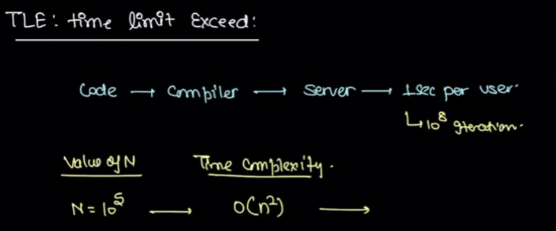
Bitwise operator works on bits of data #
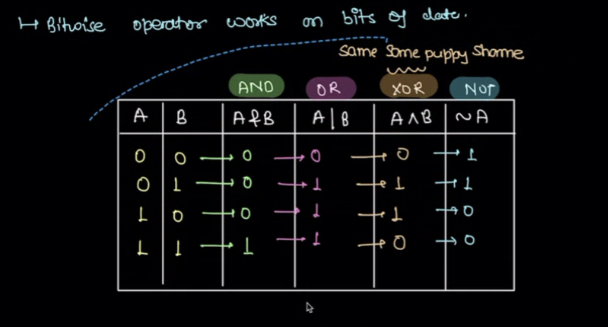
- a | b >= max(a, b)
- a & b < max(a, b)
- XOR: no relation
- ~a changes sign.
- +ve, 0 become -ve
- -ve become +ve, 0
- 1 left shift -> 2 * a.
- If a = 1, then k left shift = 2k. This means 2*n without loop is a single expression, (1 << n). In O(1) time complexity. Important optimization in coding
- 1 right shift -> floor(…floor(a/2)) or directly a/2^n. Actually the prior, but answer wise both are equivalent (since off by 1 is rounded off if number is int), so O(1).
Sq root of n #
- Takes time log(n) if we do binary search.
Summary #
Assignments #
- 10 basic time complexity questions, like given code’s complexity.
Code problem 1 #
Given an integer A, you need to find the count of it’s factors. Factor of a number is the number which divides it perfectly leaving no remainder. Example : 1, 2, 3, 6 are factors of 6
module.exports = {
//param A : integer
//return an integer
solve : function(A){
A = BigInt(A);
let i = BigInt(1);
let j = BigInt(0);
let count = BigInt(0);
while(true) {
if(A%i===BigInt(0))
{
j = A/i;
if(i<j) {
count+=BigInt(2);
}
else if(i===j) {
count+=BigInt(1);
break;
}
else
break;
}
i+=BigInt(1);
}
return Number(count);
}
};
Code problem 2 #
Write a function that takes an integer and returns the number of 1 bits present in its binary representation.
module.exports = {
//param A : integer
//return an integer
numSetBits : function(A){
// A = BigInt(A);
let count = 0;
while(A) {
if(A%2) count+=1;
A = Math.floor(A/2);
}
return count;
}
};